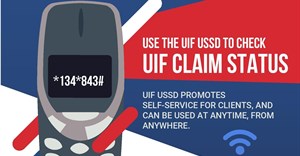
Subscribe & Follow
Overview of the basics of employer tax
But it's important to get your SARS red tape right from the start if you want to avoid problems and penalties with the tax authorities later down the line. This overview sets out the basics of employer tax - an area where you have no margin for error.
As an employer, you must deduct taxes from employees, file a range of submissions to SARS, and supply your employees with IRP5 certificates that they will also submit to SARS. You must also register all employees for income tax - everyone who is formally employed needs to be registered with SARS.
Declarations and forms to be submitted:
- Monthly Employer Declaration (EMP201) - This form declares the following deductions: PAYE (Pay as You Earn), SDL (Skills Development Levy) and UIF (Unemployment Insurance Fund) contributions.
- Employer Reconciliation Declaration (EMP501) - Twice a year you must file this reconciliation of all amounts paid to SARS on behalf of your employees. The next deadline is 29 May 2015 - don't miss it!
- Employee Tax Certificates (IRP5/IT3(a)) - You must provide these tax certificates to employees after each tax year, and they will submit them to SARS.
- Cancellation of Tax Certificates (EMP601).
- Adjustment to Annual Reconciliation (EMP701) - Where you need to make adjustments to past reconciliation and declarations, this is the relevant form.
Employers must submit their Monthly Employer Declaration (EMP201) by the seventh of each month. Then, you will usually submit an interim Employer Reconciliation Declaration (EMP501) in September-October for the six months from 1 March to 31 August. Your final annual EMP501 submission is done during April and May for the tax year 1 March to 28/29 February.
You will normally issue employee tax certificates once a year. Watch out for SARS announcements at the end of each tax year (end of February) to keep ahead of the annual submission dates.
Steps to follow
SARS no longer accepts paper-based declarations for companies with more than five employees. If you have more than 20 employees, you'll do most of your reconciliations and declarations electronically using the e@syFile software or use the eFiling website if you have under 20 employees.
Remember:
- Always use the latest version of e@syFile, since SARS will not accept data submitted using an old version of the software.
- Backup your data before installing an upgrade of e@syFile to protect yourself against the risk of possible data loss during the upgrade process.
Compiling the PAYE data and submitting employers' tax reconciliation declarations can be easy if you use the right tools - especially a reliable and efficient payroll software system - and keep track of new SARS requirements and legislative changes.















